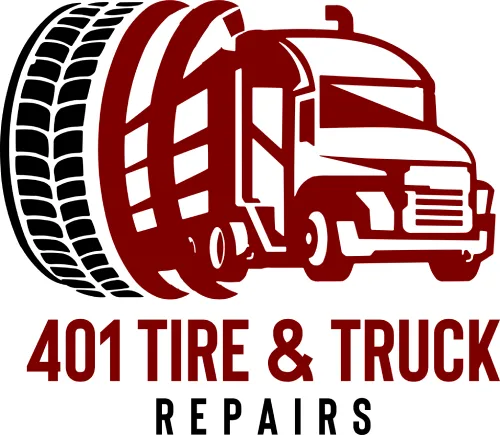Introduction
In Ontario’s diverse and challenging climate, truck owners and operators face unique obstacles in maintaining their vehicles’ performance and reliability. The Engine Control Module (ECM), often called the brain of modern trucks, is particularly vulnerable to environmental factors. At 401 Tire and Truck Repairs, we understand how Ontario’s harsh winters, humid summers, and road conditions can impact your truck’s ECM. This comprehensive guide explores the top causes of ECM malfunctions in Ontario’s climate and offers practical advice to keep your truck running smoothly.
Understanding the ECM and Its Critical Role
The Engine Control Module (ECM) is a sophisticated computer that manages your truck’s engine functions. It regulates the fuel-to-air ratio, controls ignition timing, monitors engine speed, and adjusts variables like turbo boost pressure and exhaust gas recirculation (EGR). By processing data from numerous sensors, the ECM ensures optimal performance, fuel efficiency, and emissions control . Given its pivotal role, any malfunction can lead to significant performance issues, costly repairs, or even dangerous breakdowns.
How Ontario’s Climate Challenges Your Truck’s ECM
Ontario experiences a wide range of weather conditions, from frigid winters with heavy snowfall and road salt to humid summers with high temperatures. These environmental factors can exacerbate common ECM issues, making climate-specific maintenance essential for truck owners.
Top Causes of ECM Malfunctions in Ontario’s Climate
1. Moisture and Corrosion from Road Salt and Humidity
Ontario’s winters involve extensive use of road salt to melt ice and snow. While effective for safety, salt accelerates corrosion and rust on electrical components, including ECM wiring and connectors. Moisture from salted roads can infiltrate seals and cause short circuits or connectivity issues. Similarly, summer humidity can lead to condensation within electrical systems, promoting corrosion over time. Regular inspections and protective measures are crucial to prevent salt-induced damage .
2. Temperature Extremes and Overheating
Ontario’s climate swings from bitterly cold winters to hot, humid summers. Extreme cold can make electronic components brittle and prone to failure, while excessive heat can cause the ECM to overheat. Trucks operating in summer temperatures or under heavy loads may experience reduced cooling efficiency, leading to thermal stress on the ECM. Overheating can degrade internal circuits, cause solder joints to crack, and trigger software glitches .
3. Faulty Sensors Due to Environmental Stress
The ECM relies on data from sensors monitoring engine temperature, oxygen levels, pressure, and more. Ontario’s climate can accelerate sensor wear:
- Winter: Salt and moisture corrode sensor connectors.
- Summer: Heat and dust contaminate sensors.
A faulty sensor sends incorrect data to the ECM, leading to poor performance, reduced fuel efficiency, or engine misfires. Regular sensor checks are vital .
4. Electrical Malfunctions from Vibration and Wear
Ontario’s roads, especially in rural areas or construction zones, can be rough and uneven. Constant vibration loosens electrical connections, damages wiring, and dislodges ECM components. Combined with climate-induced corrosion, this vibration increases the risk of electrical failures, such as short circuits or intermittent power loss to the ECM .
5. Software Glitches and Outdated Firmware
Extreme temperatures and humidity can exacerbate software issues. For example, cold weather may slow down processing, while heat can cause overheating-related errors. Outdated firmware might lack robustness for Ontario’s climate variations, leading to performance issues like erratic shifting or poor acceleration. Regular software updates are essential .
6. Poor Ventilation and Cooling System Issues
In summer, Ontario’s high temperatures can overwhelm a truck’s cooling system. If the ECM’s cooling mechanisms are blocked or inefficient, heat buildup can occur. Dust and debris from roads can clog ventilation paths, reducing heat dissipation. Ensuring proper cooling system function is key to preventing overheating-related ECM failures .
7. Battery and Power Supply Problems
Cold weather strains batteries, reducing their efficiency and voltage output. An underperforming battery can cause voltage fluctuations that destabilize the ECM. Similarly, alternator issues in extreme heat can lead to power surges or drops, potentially damaging the ECM’s sensitive electronics .
8. Improper Repairs or Low-Quality Parts
Using non-genuine parts or inexperienced technicians for ECM-related repairs can exacerbate climate-related issues. For example, inferior seals may not protect against moisture, and incorrect programming might not account for Ontario’s climate demands. Trusting experts like 401 Tire and Truck Repairs ensures quality service .
Preventive Measures for Ontario Truck Owners
1. Regular ECM Diagnostics and Maintenance
Routine check-ups can identify early signs of ECM trouble, such as error codes or performance changes. At 401 Tire and Truck Repairs, we offer comprehensive diagnostic services to detect issues before they escalate .
2. Protect Against Moisture and Corrosion
- Apply dielectric grease to electrical connections to repel moisture.
- Regularly clean ECM components to remove salt and dirt buildup.
- Inspect seals and housings for damage, especially after winter.
3. Ensure Proper Cooling and Ventilation
- Check cooling systems before summer and winter.
- Clean vents and pathways to prevent dust clogging.
- Monitor engine temperature gauges for abnormalities.
4. Use Genuine Parts and Professional Services
Opt for OEM-quality parts and experienced technicians. 401 Tire and Truck Repairs uses reliable components and offers expert ECM programming and repairs tailored to Ontario’s conditions .
5. Keep Software and Firmware Updated
Regular updates ensure your ECM is optimized for performance in varying climates. Professional reprogramming can address climate-specific issues .
6. Battery and Electrical System Checks
Before winter, test batteries and alternators. Ensure connections are tight and free from corrosion to avoid power issues .
Signs of ECM Failure to Watch For
- Check engine light illuminated
- Engine misfires or stutters
- Reduced fuel economy
- Difficulty starting the truck
- Erratic shifting or loss of acceleration
If you notice these signs, seek professional diagnostics immediately.
Seasonal Maintenance Tips for Ontario Drivers
- Winter: Focus on battery health, corrosion prevention, and ensuring warm-up cycles to reduce ECM stress.
- Summer: Prioritize cooling system checks, cleaning sensors, and monitoring for overheating.
Year-round, rely on 401 Tire and Truck Repairs for climate-aware maintenance .
Why Choose 401 Tire and Truck Repairs for ECM Services?
- Local Expertise: We understand Ontario’s climate challenges.
- Comprehensive Diagnostics: Advanced tools to pinpoint ECM issues.
- Quality Repairs: We use genuine parts and offer rebuilding or programming services.
- Preventive Guidance: Tailored advice to keep your ECM healthy.
For ECM diagnostics, repairs, or maintenance, contact 401 Tire and Truck Repairs today.
Conclusion
Ontario’s climate poses significant challenges for truck ECMs, but with proactive maintenance and professional support, you can avoid costly breakdowns. By addressing causes like corrosion, temperature extremes, and faulty sensors, truck owners can ensure longevity and reliability. Trust 401 Tire and Truck Repairs to keep your ECM—and your truck—performing optimally through every season.

